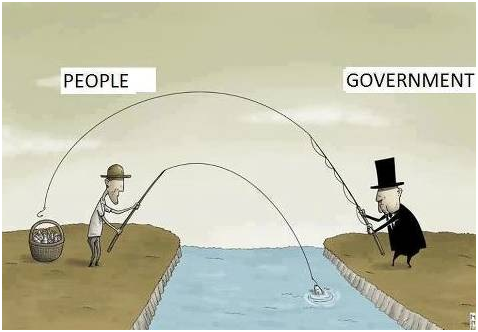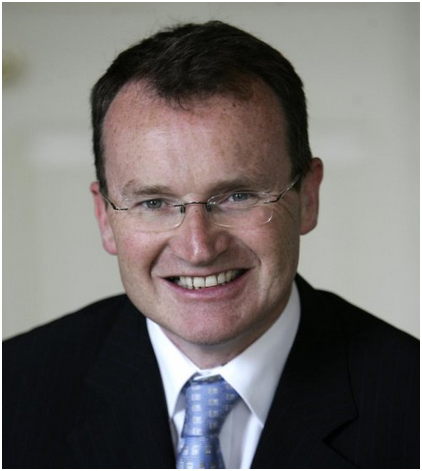On Tuesday we launched our in depth research report ‘From Bail-Outs to Bail-Ins: Risks and Ramifications’ in order to shed light on and foster debate on what we believe is one of the most significant risks facing investors, savers, all depositors and most western economies – bail-ins.
In it we detail, how bail-ins are a real risk not just to vulnerable countries like Greece, but to any countries in the EU, the UK, the U.S., Australia, New Zealand, Japan and most of the G20 countries.
Below some leading economists and financial commentators in Ireland give their perspective regarding the risks of bail-ins. If you manage money in any way, your own or others, it will be prudent to heed their warnings.

Dr Constantin Gurdgiev
“The recent abatement of the euro area crisis and the reduction in overall global financial uncertainty have led to a decline in the demand for gold as a safe haven instrument and speculative asset.
This is the good news. In line with more normalised demand for gold and the precious metals, the risk hedging properties of these assets remain intact and require continued and structured approach to their inclusion when building a diversified, long-term focused investment portfolios.
In addition, changes in the regulatory and policy responses to the financial crises, established in response to the Cypriot banking crisis, warrant longer-term re-weighting of optimal gold and other precious metals’ shares in defensive portfolios.
Given that the euro area is moving toward a pro-forma inclusion of the depositors bail-ins in the standard toolbox for dealing with the financially distressed national banking systems, the case for gradual cost-minimising increase in long term share of these instruments in individual investors portfolios is being made not only by the market forces, but also by regulatory changes.
Contrary to the short-term signals in the spot markets, gold and other precious metals role in delivering long-term risk management opportunities and tail risks hedging is becoming more important as the immediate volatility and short-term risks recede.”
Dr Constantin Gurdgiev lectures in Finance in Trinity College, Dublin and in the Smurfit School of Business, UCD. He serves as the Chairman of Ireland Russia Business Association. In the past, he served as non-executive member on the Investment Committee of Goldcore.


Cormac Lucey
“In November 2012, it was reported by RTÉ’s David Murphy that CRH, the building materials maker and the biggest company on the benchmark Irish stock index, “was mandated by its board not to leave cash in a bank in the euro zone during any weekend”.
The logic of CRH’s stance only became fully clear after weekend decisions taken by Eurozone finance ministers had a severe and adverse effect on the financial claims of depositors in Cypriot banks in March 2013.
Had ordinary retail and SME depositors in Cyprus’s banks known in February of CRH’s stance and of the logic behind it, does anyone seriously think that they would have left themselves so vulnerable in March?
The lesson from Cyprus is that individual and business depositors (small, medium and large) need to show at least as much care in making their deposit decisions as large corporations such as CRH.
Depositors should seriously consider two questions when putting money into a bank:
(i) is there is a serious possibility of the bank failing?
(ii) if the bank fails, is there then a serious possibility that the government would be unable to honour deposit guarantees in full?
If there is a significant possibility, even small, of capital loss, depositors should ask themselves the same question that corporate treasurers regularly ask themselves: am I being adequately compensated by the deposit rate for the risk I am now exposing my money to?”
Cormac Lucey is a chartered accountant, financial analyst & lecturer at the Irish Management Institute (IMI). He was special advisor to Michael McDowell, former Attorney General of Ireland, from 2003 to 2007. He is a commentator on economics and politics.


Jim Power
“The attempted bail-in of all deposits in the Cypriot banking crisis and the eventual decision to bail-in deposits in excess of €100,000 has drawn a line in the sand and has created a very dangerous and damaging precedent. A banking system has to be based on trust and confidence; the Cypriot decision and subsequent statements from European policy makers suggest that trust and confidence have been seriously, and possibly irredeemably, damaged.
Any individual or any corporate treasurer would be taking an unacceptable risk in making a decision to leave deposits in excess of €100,000 in any single bank, unless one is convinced that the institution is 100% sound. The events of the past 5 years should have taught us that such a conviction would be dangerous.
For investors, bank diversification is essential, but more broadly, asset diversification has to be the priority for anybody with any wealth. We still live in very dangerous and uncertain times and investors should do whatever it takes to manage risk and ensure that all of their eggs are not in a single basket that may be badly holed.”
No comments:
Post a Comment